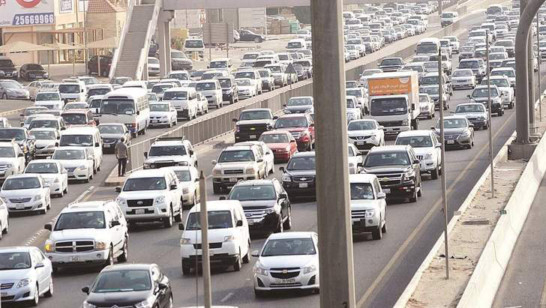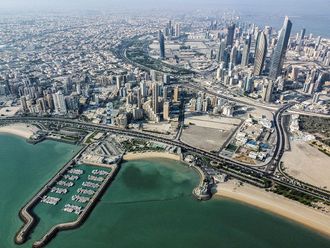
Manama: With schools reopening on Sunday following the summer vacation, traffic seemed to return to abnormality in Kuwait, a Kuwaiti daily said.
“It is an annual crisis that lasts from September to June and during which families compete against time as they drop their children at schools, then head to work, and then go back to schools to pick up their children,” Al Rai reported on Sunday.
“There is no doubt that this crisis that is discussed and reviewed annually at various levels is due to the increase in the number of cars on the roads and due to lack of long-term solutions related to the infrastructure.”
Kuwait is home to 1,925,168 vehicles, of which 1,552,738 are privately-owned. The country is also home to 245,626 pick-ups and 28,722 buses that are privately owned and used for transportation. The total number of taxis reached 17,458.
In 2015, Kuwait registered 87,796 new vehicles, a 4.8 per cent increase over 2014, the daily said, citing traffic figures released by the interior ministry.
The police use 5,258 vehicles to supervise and regulate traffic all over the northern Arabian Gulf state, the figures showed, meaning that every police car had to deal on average with 366 civilian vehicles.
According to the ministry, the number of driving licences increased by four per cent over 2014 and reached 2,556,126. The figure included 2,062,149 private licences.
The traffic authorities issued 84,543 licences, a five per cent increase. Foreigners dominated the figures with 60,110 licences while Kuwaitis received 24,433 permits.
The figure among expatriates marked an increase of 10 per cent over 2014 while it was a four per cent drop for Kuwaiti nationals.
“With such figures, we expect traffic congestion to again mark the new academic year,” the daily said.
Suggestions by Al Rai to address the issue include shifting the school day by bringing it backward from 7:30am to 6:45am. According to the daily, the main crisis on the roads occurs between 7am and 8:30am.
Colleges should start at 9am, at least one hour after parents have reached their workplaces resulting in fewer cars on the roads, the daily suggested.
State employees should be encouraged to take up flexible timings that would reduce the simultaneous presence of cars on the roads.
“We can for instance encourage bachelors or parents who do not have to drive their children to or from school to work from 9am to 3pm.










